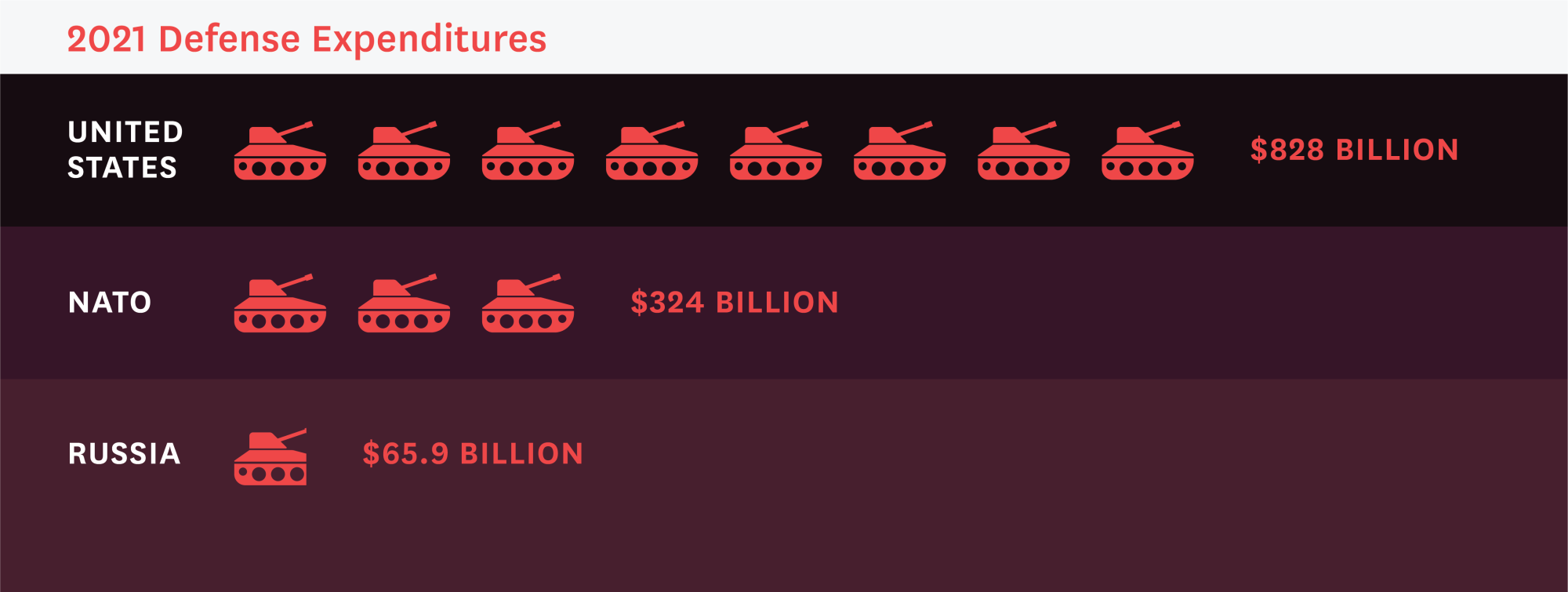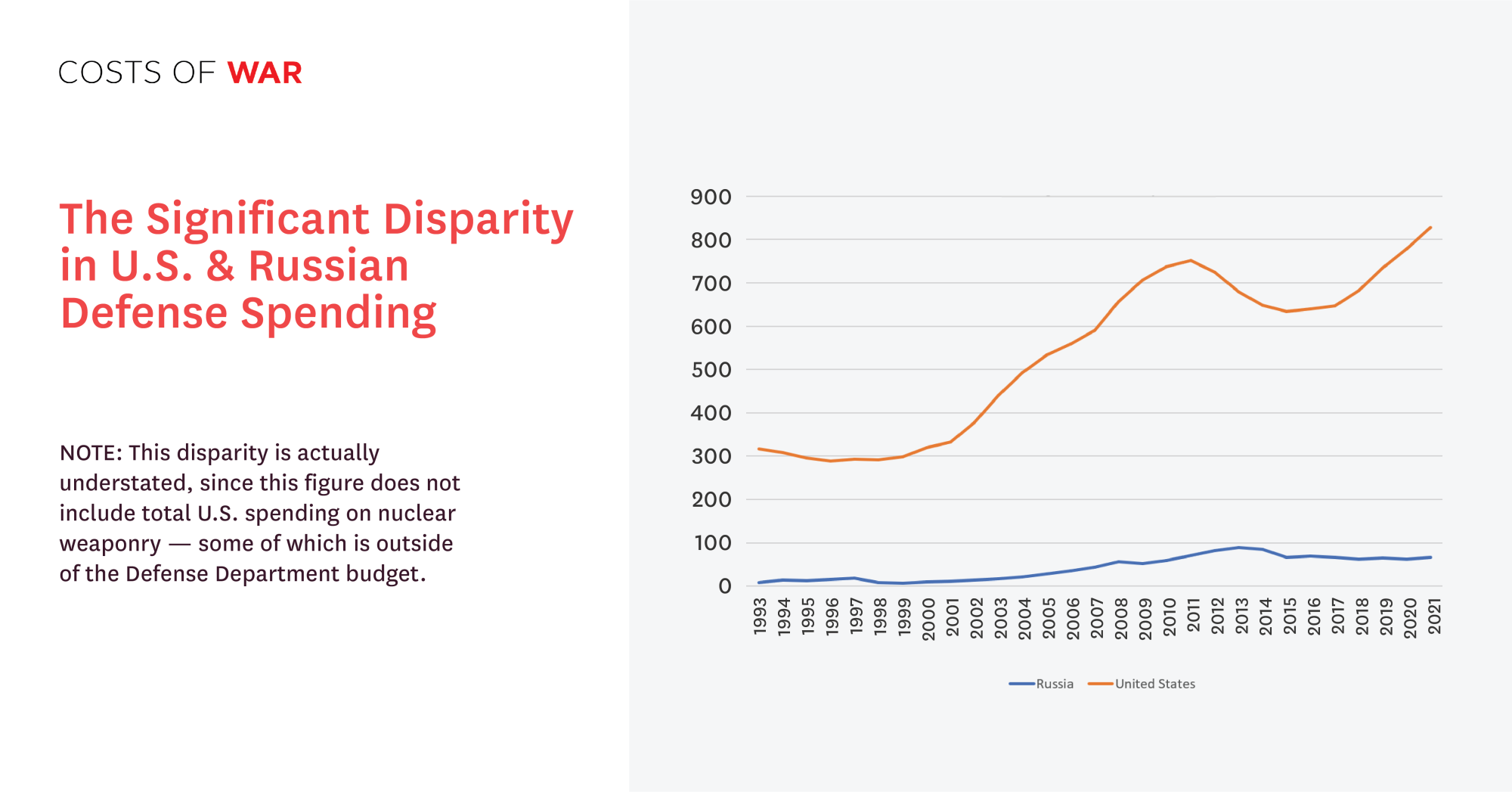Paper
Lyle Goldstein (Director of the China Initiative and Senior Fellow, Watson School of International and Public Affairs, Brown University) writes that if the U.S. and NATO increase their military spending and conventional forces in Europe, the weakness of Russian conventional military forces could prompt Moscow to rely more heavily on its nuclear forces. This paper lays out the case for why the United States should not engage in threat inflation when it comes to Russia, or use Russia as an excuse to expand the military budget.

While the Russian military maintains the world’s largest stockpile of nuclear weaponry, the Russian defense budget amounts to less than 1/10 of the U.S. defense budget, just 1/5 of NATO (non-U.S.) spending, and just 6% of the NATO defense spending on aggregate. Though U.S. military spending has long surpassed Russian military spending, it escalated dramatically above Russia’s spending in the post-9/11 era. Russia has invested far fewer resources in its military than the U.S. and views its own military strength as lagging very significantly behind the U.S.
De-escalatory approaches would include, at a minimum: direct talks, reviving the arms control agenda, and pursuing military confidence building measures between NATO countries and Russia.
Western strategists have a long tradition of overinflating Russia as a threat. One example is the promotion by U.S. politicians of a false “missile gap” with the USSR in the early decades of the Cold War, which accelerated an arms race that resulted in wasteful and dangerous arsenals of tens of thousands of nuclear weapons on both sides.

